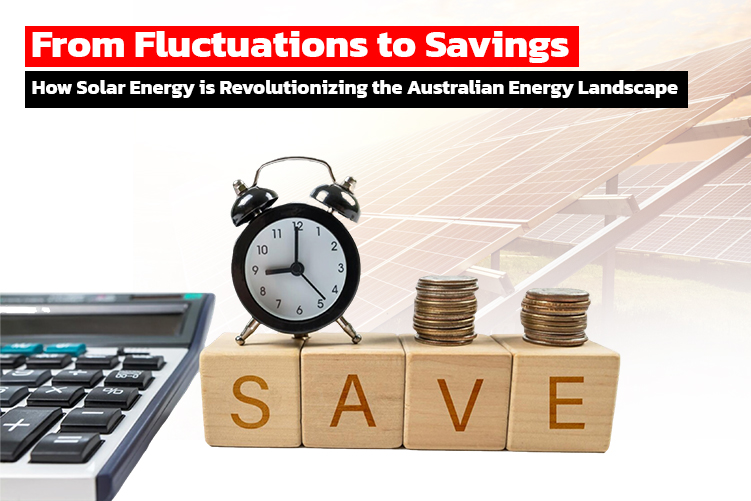Energy prices in Australia have been subject to significant fluctuations in recent years, with prices rising and falling in response to a range of factors, including changes in supply and demand, changes in government policy, and the impact of global events such as the COVID-19 pandemic and Russia Ukraine war.
One major factor affecting energy prices in Australia is the supply and demand balance. In times of high demand, such as during hot summer months when air conditioning usage is high, energy prices tend to rise as supply struggles to keep up. Conversely, in times of low demand, such as during cooler months when heating usage is low, energy prices tend to fall. However, these price fluctuations are uncertain and are different for different states.
Another factor affecting energy prices is changes in government policy. In recent years, the Australian government has implemented a range of policies designed to reduce greenhouse gas emissions and promote the use of renewable energy sources such as solar and wind power. These policies, such as the Renewable Energy Target and the Small-scale Renewable Energy Scheme, have had an impact on energy prices, with the cost of renewable energy becoming increasingly competitive with traditional fossil fuel sources. Solar panel rebates are available of up to $1400 plus the option of an interest free loan in Victoria. Get in touch with our experts at 1300285885 to check free solar Vic rebate eligibility.
The impact of several global events has also had an effect on energy prices in Australia. The pandemic led to a significant reduction in demand for energy, particularly in the commercial and industrial sectors, which in turn led to a drop in energy prices. However, the global crisis led to an increase in energy consumption and lower supplies. Despite these fluctuations, it is important to note that energy prices in Australia are generally considered to be high compared to other developed countries. This is due in part to the high cost of generating and distributing energy in Australia, which is largely due to the country’s geographic isolation and the challenges of maintaining a reliable energy grid across vast distances.
In response to these challenges, many Australian households and businesses are turning to alternative energy sources such as solar power in order to reduce their energy costs and improve their sustainability. With the cost of solar panels and batteries falling in recent years, and government subsidies and incentives available to help offset the upfront costs of installation, solar power is becoming an increasingly attractive option for many Australians. The fluctuating energy prices in Australia can have a significant impact on households and businesses. Fortunately, solar power can provide a viable solution for those looking to reduce their energy costs and mitigate the impact of these fluctuations.
One of the main benefits of solar power is that it provides a stable, predictable source of energy that is not subject to the same supply and demand fluctuations as traditional fossil fuel sources. This is because solar power is generated on-site, meaning that households and businesses can generate their own energy without relying on external sources.
Additionally, solar power can help to reduce the strain on the energy grid during times of high demand, such as during hot summer months when air conditioning usage is high. By generating their own energy, households and businesses can reduce their reliance on the grid and help to ease the strain on the system, which can ultimately help to reduce energy prices for everyone.
One of the benefits of solar power is that it can provide a hedge against rising energy prices. Unlike traditional energy sources, which are subject to price fluctuations based on a range of external factors, the cost of solar power is largely fixed once the system is installed. This means that households and businesses can enjoy stable, predictable energy costs for the life of their solar system, regardless of any external price fluctuations.
In addition to these benefits, solar power is also a clean, renewable energy source that can help to reduce greenhouse gas emissions and promote sustainability. With the Australian government committing to a target of net-zero emissions by 2050, solar power will play an increasingly important role in meeting these targets and reducing Australia’s reliance on traditional fossil fuels.
While there are upfront costs associated with installing a solar system, these costs can be offset by government subsidies and incentives, as well as through the long-term savings provided by reduced energy costs. Additionally, advances in solar technology, such as the development of more efficient panels and energy storage systems, are making solar power an increasingly viable option for households and businesses of all sizes.
Conclusion
Solar power can provide a viable solution for those looking to deal with fluctuating energy prices in Australia. By providing a stable, predictable source of energy that is not subject to the same price fluctuations as traditional energy sources, solar power can help households and businesses reduce their energy costs and mitigate the impact of external price fluctuations. Additionally, solar power is a clean, renewable energy source that can help to promote sustainability and reduce Australia’s reliance on fossil fuels. With government incentives and advances in technology making solar power an increasingly attractive option, now is the perfect time to consider making the switch to solar. Solar Miner is offering a one stop solar solution for Victorian homeowners to switch to green energy and save money. Discuss your electricity bills with our experts at 1300285885 and request a free solar quote.





